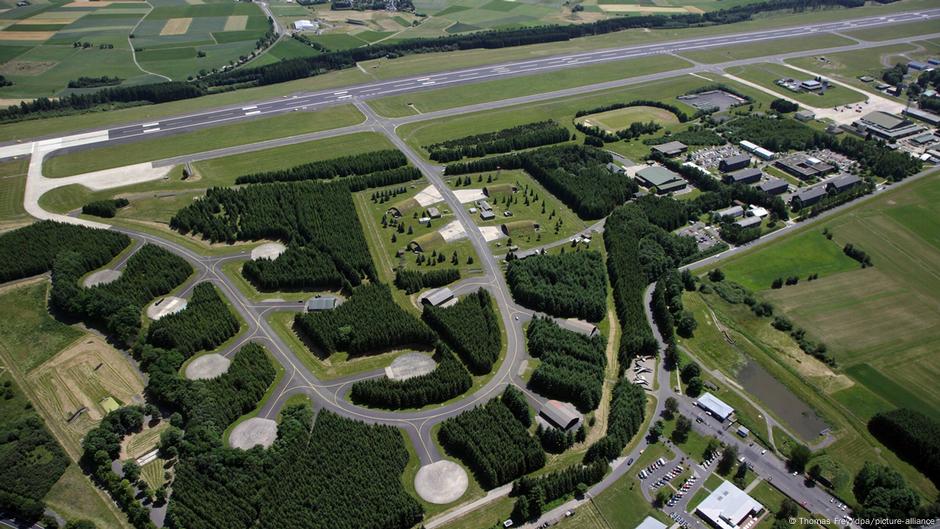Germany's Nuclear Dilemma: A Nation Divided
U.S. nuclear arms remain deployed in Germany. However, President Donald Trump’s shift towards distancing from Europe is undermining collective nuclear deterrence. Might France play a role in addressing this issue?

Germany has kept Emmanuel Macron waiting for quite some time now. Multiple times, President Macron suggested discussions with Germany about nuclear deterrence in Europe, leveraging France’s nuclear arsenal. However, his proposals have often met resistance from Germany.
This dynamic is now shifting. Friedrich Merz, the head of the center-right Christian Democratic Union (CDU) who is expected to become the next Chancellor of Germany, is prepared for dialogue. Following President Donald Trump’s threats from the White House to potentially withdraw U.S. military protection for European partners, the circumstances have altered significantly.
US missiles in Germany
For decades, Germany has relied on the U.S. nuclear umbrella for protection. As many as 20 American nuclear warheads are stored at the German military airbase in Büchel, located in the state of Rhineland-Palatinate. The authority to deploy these weapons rests solely with the President of the United States.
However, the Bundeswehr supplies the fighter planes that would fly them to their targets in an emergency. "Nuclear sharing" is what NATO calls this jointly organized nuclear deterrence with US weapons, and which also extends to other European countries.
The atmosphere in Germany is changing.
The "Two Plus Four Treaty," which was signed in 1990 following German reunification, stated that Germany would be prohibited from possessing its own nuclear arms.
Two polls carried out in early March by Forsa and Civey indicated that 31% and 38% of Germans supported their country acquiring nuclear arms. Although this remains below half, it represents an increase from the figures recorded twelve months prior.
However, these changes in public sentiment are not expected to influence policies. Additionally, it remains uncertain whether Germany possesses the capability to develop its own nuclear weapons at this time.
In an article published in early March, the Wall Street Journal referred to the nation's limited stockpile of weapons-grade uranium used in a civilian research reactor managed by the Technical University of Munich. The document asserted that while Germany possesses the scientific and industrial foundation necessary for developing nuclear arms, it would require external assistance. However, obtaining such aid would be impossible as long as the country remained part of the Treaty on the Non-Proliferation of Nuclear Weapons.
Germany's potential next leader has dismissed such speculations. Germany “neither can nor should possess its own nuclear weapons,” Merz stated to news agency dpa on March 9. According to Merz, Germany has “clearly refrained from owning nuclear weapons” and this position remains unchanged.
Merz aims to talk about nuclear deterrence in Europe with France and the UK, countries that possess nuclear arms. The path to discussions was already quite open when it came to meeting in Paris.
France and the UK
Across Europe, only the United Kingdom and France possess independent nuclear arsenals; however, inside the European Union, this capability is solely held by France. Thus, enhanced collaboration could prove beneficial. Nonetheless, several challenges persist. Britain’s nuclear capabilities are intricately linked with those of the United States and would support NATO should tensions escalate into conflicts. Conversely, France places significant emphasis on keeping its nuclear arsenal autonomous, ensuring these assets remain outside of NATO’s unified command framework.
Security analysts do not anticipate the U.S. removing its nuclear arsenal from Europe anytime soon. According to Sascha Hach, a specialist in European security and disarmament at PRIF, "This scenario doesn’t seem likely in the immediate future due to the significant strategic value that NATO’s nuclear-sharing arrangement holds for the United States across multiple fronts." However, he adds, "It can't be completely dismissed either." A key benefit for the U.S. lies in its capacity to counteract potential acts of aggression initiated by Russia within Europe.
Even if American nuclear weapons stay in Europe for now, the doubts that Trump is planting are already undermining the reliability of US nuclear deterrence. Germany, which has traditionally depended significantly on the US, aims to reshape its security strategy. As part of this shift, the Bundeswehr plans to accelerate its modernization beyond previous schedules.
Debates surrounding the efficacy of nuclear shields also persist. It raises questions about whether such defenses would be adequate enough to counteract Russia’s extensive nuclear arsenal, which comprises over 5,500 warheads.

Navy and air-based nuclear capabilities
France possesses 290 nuclear warheads capable of being launched from nuclear submarines or Rafale fighter aircraft. The country asserts that its nuclear capabilities, referred to as the "Force de frappe," enhance European security by serving as a deterrent against possible threats.
What precisely might such collaboration entail? The management and strategic planning of nuclear weapons involve extremely sensitive information. France boasts decades of expertise in this field, an advantage that Germany lacks.
According to French security expert Camille Grand from the European Council on Foreign Relations (ECFR), joint training missions involving the German and French air forces are possible. These might include French Rafale aircraft touching down in Germany. Nonetheless, the deployment of French nuclear-capable fighter jets or additional nuclear facilities in Germany, as suggested by certain news outlets, has not been scheduled.
"It would be erroneous to think that French nuclear assurances would mirror those provided by America," stressed Camille Grand during an interview with .
The French government has consistently stated that it will not cede control over the decision to deploy nuclear weapons.
UK weapons
The French aren’t alone in emphasizing their nuclear capabilities for national defense; British nuclear forces share this focus as well. Among nuclear-armed states, the United Kingdom stands out uniquely for relying solely on one kind of nuclear weaponry. This nation’s entire nuclear deterrence strategy hinges exclusively on submarine deployments. Specifically, it consists of four nuclear-powered subs located along Scotland’s western shores.
It is plausible to envision a more robust strategic alliance or what could be termed as a "political statement asserting that both the French and British nuclear arsenals would be employed for defending European territories during critical situations," according to security analyst Sascha Hach. However, he believes it’s impractical to anticipate that the nuclear capabilities of France and the United Kingdom will evolve so as to specifically cater to Europe's defensive needs.
According to Hach, the quantity of nuclear weapons isn't the crucial element. He cautioned that other significant defensive strategies could vanish in the absence of U.S. involvement, including immediate military ties with adversaries. "In my view," he stated, "it would be beneficial for Europe to establish comparable frameworks and systems that provide us oversight."
The original version of this article was in German.
If you’re still around: Each Tuesday, our team of editors compiles an overview of current events in German politics and society. You can subscribe here for the weekly email newsletter called Berlin Briefing.
Author: Nina Werkhäuser





